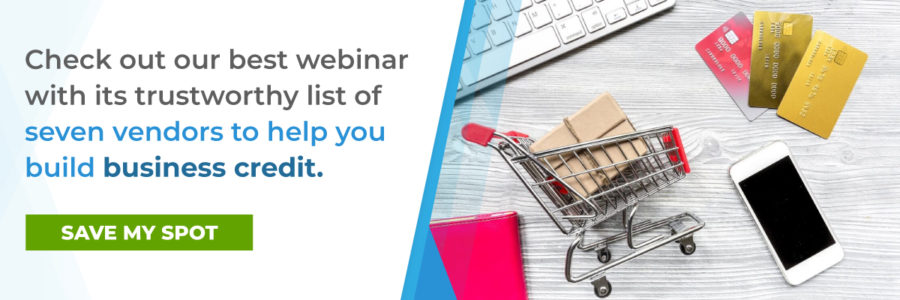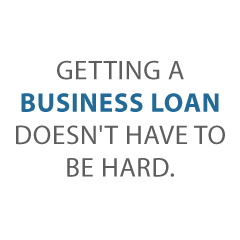
A Business Loan for Every Situation
Are you a startup? Do you have a temporary cash shortage you need to cover? Is your credit not so great, or do you need cash to purchase in bulk? Whatever is going on rest assured, there is pretty much a business loan for every situation. Yes, you can even get a business loan now. Pandemic or no pandemic, you can get business money.
Sometimes a Business Loan Is Not What You Need
Even if, somehow, there isn’t a business loan in the traditional sense to help, there are still options. Sometimes, a traditional business loan isn’t even the right answer. Something else might actually be better.
Going on the assumption that most folks understand what a standard term loan from a traditional lender is, we are going to discuss alternatives to this solution. After all, if you don’t know what’s out there, you’ll never know what might work best for you.
Business Loans and Other Options for Startup
When it comes to starting a business, you can get a business loan if you qualify. There are other options too though.
Check out our best webinar with its trustworthy list of seven vendors to help you build business credit.
Investors
You probably know what investors are. Finding traditional investors for your business involves a number of things. First, you have to find investors with deep enough pockets that are willing to hear your pitch. Then, you have to actually create a pitch, and hope they like it.
Then there are angel investors. They work a little differently. Angels are usually more informal than other investors. They can be people you know. They can be people you connect with through networking or other means. Even your mom can be an angel investor.
Crowdfunding
While the average person that wants to start a business needs funding, it is not always possible to find one or two large investors. With crowdfunding, you can access a lot of investors to fund your business $5 and $10 at the time.
There are many crowdfunding sites. Still, the most popular are Kickstarter and Indiegogo. They are similar to each other. However, there are some major differences as well. The most obvious is the timing of when you get the money that others give your company.
Kickstarter requires you to set a goal first. You do not receive your funds until you reach your goal. For example, if you set a goal of $5,000 when you start your campaign, you will not receive any money that investors offer up until you reach that $5,000.
Indiegogo requires a goal as well. However, they offer the option to receive funds as you go. In addition, they have an option called InDemand. This program lets you keep raising funds even after your original campaign is over. That means you do not have to start a whole new campaign. It’s more like an extension.
There are other crowdfunding sites out there also. Different ones work better for certain businesses and vendors. To figure out which one might work best for your needs, you’ll have to do some research. Keep in mind your type of business and the specific business each one appeals too.
Crowdfunding is a good starting point for a new business. Yet, don’t put all your eggs in this basket. You need a backup plan. Only a small percentage of campaigns are successful. Furthermore, take into account the state of the economy before you rely too heavily on crowdfunding. If it isn’t strong, people will not be as likely to invest.
Business Loans and Other Options for Getting Back on Your Feet
If you are struggling for a season to keep things going, these options could help. Remember though, none of them are a permanent solution. To be successful your business has to eventually support itself. Be sure to use the time these funds may buy you to figure out the problem and how to fix it.
Non-Traditional Business Loans
These are business loans from companies other than banks. Typically, they are referred to as private lenders or alternative lenders. A lot of them have popped up in the past decade as starting your own business has become more popular. A need for financing options from somewhere other than traditional banks has encouraged this growth.
There are a few benefits to using private business loans over traditional loans. The first is that they often have more flexible credit score minimums. Even though they still rely on your personal credit, they will usually accept a score much lower than what traditional lenders require. Another benefit is that they will sometimes report to the business credit reporting agencies. As a result, they can help build or improve business credit if you pay them responsibly.
The tradeoff is that private business loans tend to have higher interest rates and less favorable terms. However, the ability to get funding and the potential increase in business credit score can make it well worth it.
Business Credit Cards
Credit cards often get a bad rap all around. It’s no wonder. If you are irresponsible, they can cause a lot of problems. However, if you handle them properly, they can be an amazing business tool. The thing is, using them to get back on your feet does propose a new set of potential issues. Since most of them come with fairly high interest rates, you need to be especially diligent to find and solve the issues that cause you to need this additional funding.
Grants
While there are not a lot out there, grants are probably more common that you think. Usually, these are offered by professional organizations. There are some government grants available as well. Competition can be tough, but they are definitely worth trying for if you think you may qualify.
Requirements vary from grant to grant. Most are only awarded to a certain number of recipients. If you fit into one of these basic categories however, they are worth considering.
- Businesses in low income areas
There are also some corporations that offer grants in the form of contests. These usually don’t require much other than that you meet the corporation’s definition of a small business and win the contest. For example, FedEx offers such a context each year.
Check out our best webinar with its trustworthy list of seven vendors to help you build business credit.
Business Loans and Other Options for Bridging Cash Gaps
Sometimes you aren’t really down on your luck. You may just have a cash gap that is obviously temporary. Seasonal businesses see this on a regular basis. Another situation that may cause this is that you have some large invoices that just do not get pain fast enough. These things can easily be handled with some of the following tools.
Lines of Credit
The most basic definition of a line of credit is that it is a revolving line of credit, similar to a credit card. You have a limit, but you have access to funds at all times. You only make payments on the portion you use each month.
For example, if you have a $10,000 line of credit, you can use however much of those funds you need each month for whatever you want. That is, unless your lender issues some sort of restriction. Access is most typically granted through checks or a card connected to the line of credit account.
Invoice Factoring
If you are an established business with accounts receivable, invoice factoring is one of the available business funding types that you have access to. This is where the lender buys your outstanding invoices at a premium, and then collects the full amount themselves. You get cash without waiting for your customers to pay the invoices.
This is a good option if you need cash fast. It’s also good if you don’t qualify for other available funding types. The interest rate varies based on the age of the receivables.
Merchant Cash Advance
If you accept credit cards, you may be able to get a merchant cash advance. This is similar to invoice factoring, but instead of buying your open invoices, the lender advances cash based on average expected credit card sales.
Business Credit Cards
Credit cards can help in this instance as well, and they work a lot better here. In the case of a temporary cash gap, you know the money is coming. Using credit to cover a gap temporarily, and maybe collecting some rewards while you do so, isn’t terrible. This is also useful in the discount inventory situation. If you can get a great deal on bulk inventory, you can use a credit card to take advantage and buy at the lower cost. In theory, when you sell this lower cost inventory, you will actually increase your profit.
Open the Door to Any Type of Business Loan and Other Options by Building Great Fundability
Fundability is the ability of your business to get the funding it needs. Highly fundable businesses are able to get business loans quickly and easily. The thing is, few businesses start out fundable. There are many, many factors that affect the fundability of a business. This includes details ranging from something as simple as your business address to things as complicated as liens on your personal record from years ago.
Each and every aspect of fundability is important, and you need to know where you stand with each one. However, one specific piece of the fundability puzzle that is often neglected is business credit. This neglect typically stems from the fact that so few business owners really understand what it is. Many are under the belief that business credit is just debt that is in the business name. That isn’t really the case however.
About Business Credit
Credit cards and loans with your business name on them are still going on your personal credit report unless you take some very specific steps to build separate business credit. First, you have to set up your business to be a separate entity from yourself. Coincidently, this setup process is also what needs to happen to begin building strong business fundability.
Check out our best webinar with its trustworthy list of seven vendors to help you build business credit.
Set Up Your Business to Be Fundable
To set up your business to be fundable you need to ensure you have the following:
- Separate contact information including phone number, address, and email
- EIN
- D-U-N-S number
- Separate bank account
- Business Website
In addition, you absolutely have to incorporate. You can choose to be an LLC, S-corp, or corporation, but you must choose one. Any of them work when it comes to separating business from owner, so talk to your attorney or tax specialist about which option will work best for your business’s other needs.
How to Build Business Credit to Strengthen Fundability
Once you are all set up, you can start to get accounts reporting to your business credit report. You can ask vendors that you already work with if they will extend credit and report payments. They don’t have to, but they might.
You can also ask those companies you already pay monthly, like utilities and rent, to report your payments. Again, they do not have to, but they may.
Another secret to getting accounts reporting is to work with starter vendors. These are certain vendors that will extend net invoices without a credit check, and then report your payments to the business credit reporting agencies. When you get enough of these reporting, your score will be strong enough to apply for store cards like those offered by Best Buy or Office Depot.
After you get enough of those store cards and make on time payments, you’ll be able to get fleet cards like those offered by Shell and Fuelman. After more of those cards are reporting on-time payments, you should be able to get approval for any business cards out there. For example, those standard credit cards that are not tied to where or what you purchase will be an option. These are the credit cards that can really help bridge a cash gap or, as a last resort, help you get back on your feet.
Get a Business Loan – Conclusion
Getting a business loan doesn’t have to be hard. There are options to cover any situation that may come up. The problem is being eligible for the loans that best fit your needs. You need to be aware of non-financing options and which situations they are best suited for as well. Then, if your work to build business credit makes your fundability stronger, you can be sure that eventually you will be able to get funding to fit any situation that may come up.
The post A Business Loan for Every Situation appeared first on Credit Suite.











